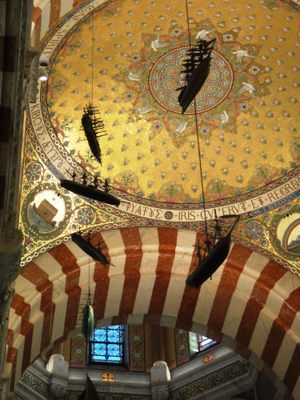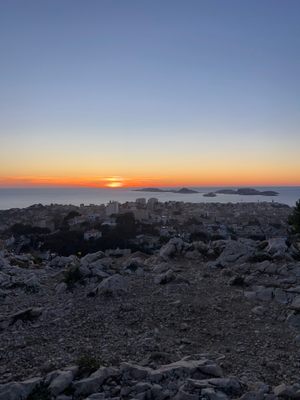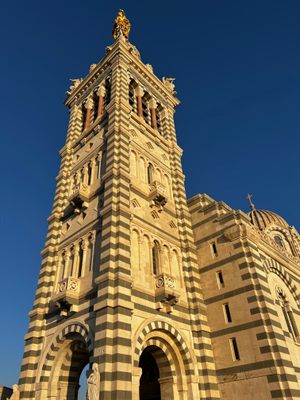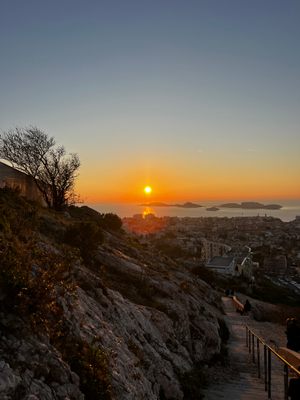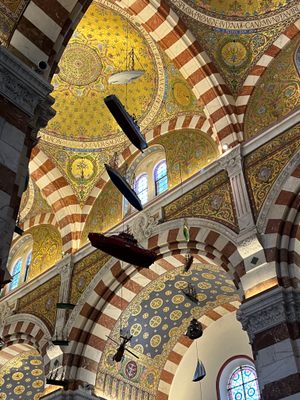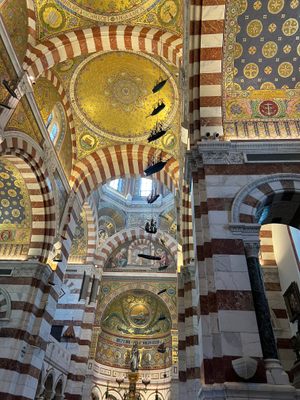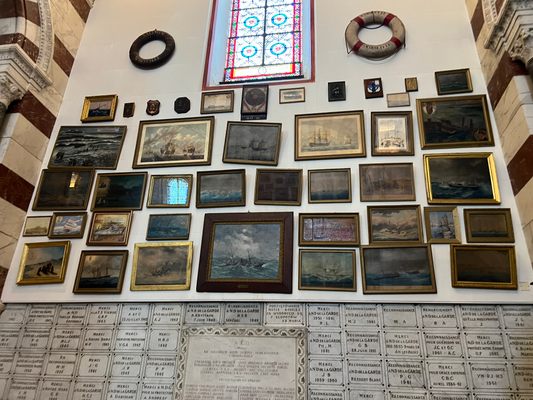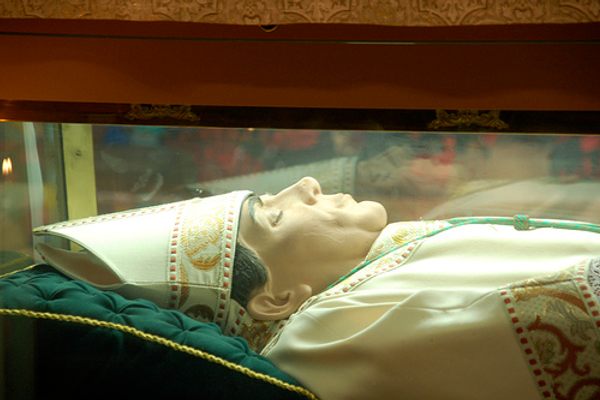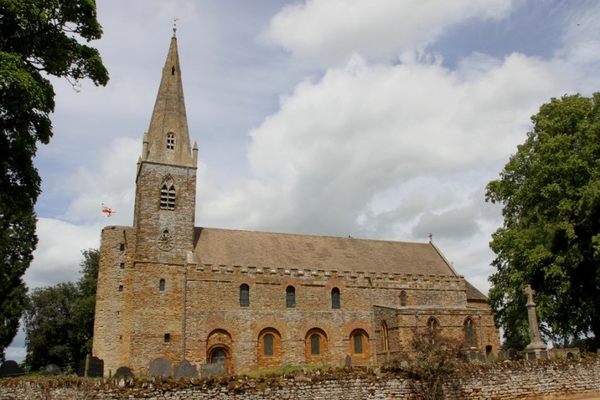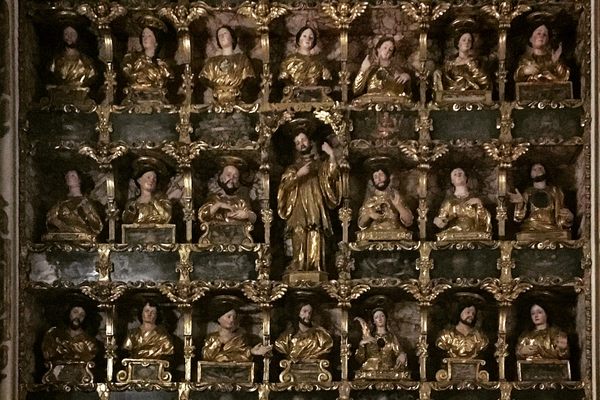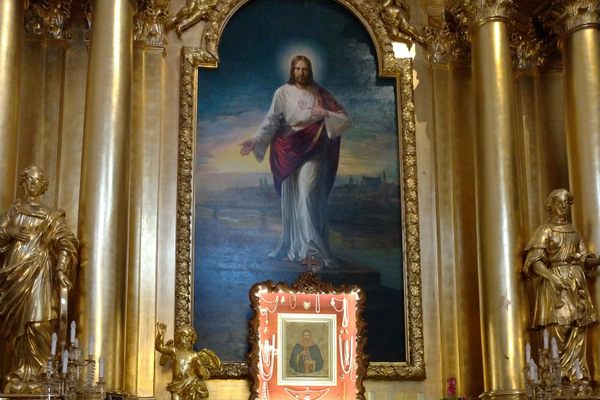About
Perched high atop a hill where a gilded statue of the Virgin could guide ships in from the sea, the Basilica of Notre-Dame de la Guarde is a stunning house of worship in its own right, even before the tiny objects of thanks decorating its interior are added into the mix.
As it stands today, Notre-Dame de la Garde has stood as a spiritual beacon for the people of Marseille since its completion in 1864. But before that a church stood on the same ground since the year 1214. Since its earliest days, this house of worship guided believers of the town, whose dominant profession was that of mariners, through stormy seas and tumultuous times.
As tokens of appreciation for times when the Virgin Mother interceded, her people began leaving ex-voto in thanks for recovering from diseases, accidents, and wrecks of all sorts. Unlike many other collections of ex-voto in which the physical representations of the sufferer's plight (commonly prosthetic limbs, crutches, bandages, and other evidence of healing) were left as evidence of salvation supplementing said gratitude, Notre-Dame de la Garde's objects of devotion take the form of vessels and dioramas, letters, and paintings.
Over the centuries, this collection has grown and evolved with the changing times, reflecting the diverse methods of salvation Marseille's people have experienced: in addition to the traditional schooners and sloops to be expected from a port town, planes dangle from the dome, while portraits bursting with passion decorate the basilica's walls. When viewed as a whole, the ex-voto represent an oddly secular, nearly complete history of the people of Marseille, spanning weather patterns and epidemics of disease across waves of political revolution and wars that irrevocably and undeniably changed the course of history. This historic record, written by the people, simply happens to be housed inside a church.
What had started as a space for ex-voto contained within Notre-Dame de la Garde now spills out of the basilica into the forecourt and down into the crypt. The slow accumulation of gratitude is now threatening to overwhelm the church itself.
Related Tags
Community Contributors
Added By
Published
December 1, 2015
